




 |
   |
 |
|
Oak Ocean Ocean Colour Scene Oceana Company |
James O'Connell Octopus Rosie O'Donnell of Montreal |
Off Course Officina Meccanica Kei Ogura Ohio Players |
Ohm Goro Ohmi & Big Mouth Danny O'Keefe |
OHO (US) see: |
 |
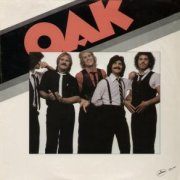 |
Oak (1979, 36.40) ***/½ |
|
| Let it All Begin Going Nowhere Fast Listen to Your Heart And You Win King of the Hill Draw the Line Song to Sing This is Love |
Friends Gimme More |
|
Current availability:
Chamberlin used:
The Maine-based Oak (originally Pinette) were the brainchild of Rick Pinette, releasing two albums on Mercury before morphing into The Rick Pinette Band in the '80s. 1979's Oak is something of a lost pomp classic, all Styx song structures and Queen harmonies, sounding not unlike Styx's contemporaneous Cornerstone in places, top tracks including opener Let It All Begin, And You Win and mighty Queenalike Friends, although a couple of the gloopier ballads rather stick in the craw, frankly. And as for that sleeve, perhaps no more should be said...
Keys man David Stone (fresh out of Rainbow) supposedly plays Chamberlin, although I can no longer find any online references to the fact. As it happens, most of the album's string work (Listen To Your Heart, King Of The Hill, Song To Sing) sounds real, despite the Chamby's legendary ability to fool the ear, although I could be wrong... As a result, the only even possible use is the background strings on Friends, but I'm not actually convinced by any of it, to be honest. Anyone allergic to pomp's hard rock/prog/AOR mashup should avoid Oak at all costs, but I suspect I'll be playing at least a few of its tracks for some time to come. A quick thanks to Mark Medley (again!) for sourcing this rarity for me.
Oasis (UK) see: |
 |
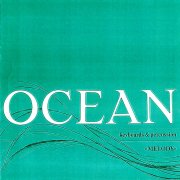 |
Melody (1981, 39.14) ****½/TT½OceanKatrin 7 to 8 Melody Wild Pig Slow & Chromatic Melody Bass Bolero |
Current availability:
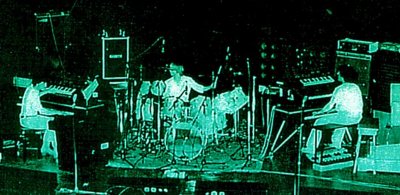 |
Mellotron used:
Ocean were a deeply obscure outfit, nothing to do with the French metal crew (whose eponymous '81 debut looks like it was made by a bunch of nineteen-year-olds). The German version produced a mini-masterpiece in Melody; entirely instrumental, it's (funnily enough) intensely melodic, slight ELP and Focus influences apparent, with much piano, although they suddenly lurch into a jazz feel on Melody Bass, sounding slightly out of place. Their, er, 'theme song', Ocean, is an absolutely fabulous classically-inspired piece that'll have all you '70s prog fiends salivating like rabid dogs, the rest of the album being almost as good. Why is this so bloody obscure?
Their Mellotron use (from Mike Hoffman) is slightly odd, as they seem to use synth strings, except for a high string melody line on Wild Pig. Otherwise, it's choirs (Katrin, Wild Pig and Slow & Chromatic) and flutes (7 To 8 Melody), with especially good use on Slow & Chromatic. Although the Mellotron use isn't its best feature (while not being at all bad), if you see a copy of this, BUY. Incidentally, mucho thanks to my long-time info-finder Joe Ellis for providing the pics.
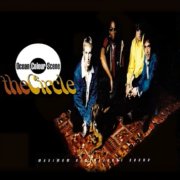 |
The Circle (1996, 13.13) ***/TThe CircleMrs Jones Cool Cool Water Top of the World |
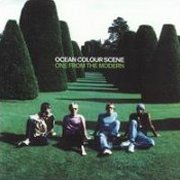 |
One From the Modern (1999, 43.28) **½/T |
|
| Profit in Peace So Low I am the News No One at All Families Step By Step July Jane She Got Excavated |
Emily Chambers Soul Driver The Waves I Won't Get Grazed |
|
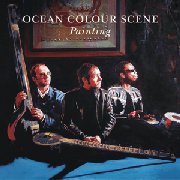 |
Painting (2013, 38.22) ***/TT |
|
| We Don't Look in the Mirror Painting Goodbye Old Town Doodle Book If God Made Everyone Weekend Professor Perplexity George's Tower |
I Don't Want to Leave England The Winning Side Mistaken Identity The Union The New Torch Song Here Comes the Dawning Day |
|
Current availability:
Mellotrons used:
Ocean Colour Scene are, to my ears, one of the many wannabes Oasis have thrown up in their wake; I mean, they'd (almost) file next to them on this page, were Oasis still here... The music is very much in the same area, which should tell you all you need to know about OCS; mostly mid-paced modern indie stuff with rather overwrought vocals and terrible lyrics. Sorry, not my bag at all. Saying that, The Circle (from their second full-lengther, '96's Mosely Shoals) and its attendant b-sides aren't too bad, not least Top Of The World, with a nice little Mellotron strings part from someone (producer Brendan Lynch playing Paul Weller's machine?), to reasonable effect.
One From the Modern is their fourth album and, in keeping with their mentors, they elected to use a Mellotron on a couple of tracks. Profit In Peace has a tiny burst of flutes, definitely played by producer Lynch this time, while Families has some more overt strings, uncredited, but probably played by Steve Cradock. That's it, really; if you like UK indie you'll probably like it and if you don't, you won't. One plus point for the album is its length; rather than try to fill the CD up, OCS have recorded a 'regular' length record, possibly so that it could also be released on vinyl without the usual messing about. Anyhow, don't buy for its Mellotron content.
2013's Painting (their most recent album to date, over a decade later) is a far stronger album than I'd expected, although its best tracks (Goodbye Old Town, Doodle Book, Weekend, the lovely George's Tower) tend to be clustered towards the beginning of the record, in true 'pop album' style. Steve Cradock plays Mellotron, with string, cello and flute parts all over opener We Don't Look In The Mirror, flutes and strings on Weekend and I Don't Want To Leave England and brass and strings on Mistaken Identity. In addition to these, 2010's Saturday credits Cradock with Mellotron on three tracks, but none of them convince.
See: Samples etc.
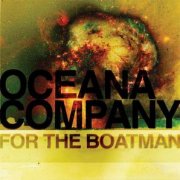 |
For the Boatman (2008, 55.53) ***½/TTT½LandingTrenchFever Freedom of Mind Imaginary Time Silent A Wayfarer's Travel The Warning Light Stays on Boatman The Big Sky |
Current availability:
Mellotron used:
Oceana Company seem to've got themselves labelled 'prog', but to my ears, they're more 'modern rock' than anything; you know, that hard rock/indie crossover that's so popular at the moment. Think Oceansize, but better. Their debut, 2008's For the Boatman, isn't a bad album by any means, better tracks including opener Landing and lengthy, trance-like closer The Big Sky. I'm not sure what's going on with the weird science fiction stuff on The Warning Light Stays On/Boatman, mind, but that's obviously how the band want it...
Vocalist/guitarist Matthijs Herder doubles on (genuine) Mellotron, to the point where it's pretty much his main instrument. The album opens with, essentially, the same Mellotron string chord that starts Crimson's Starless, carrying on throughout the track, with choirs and flutes on Freedom Of Mind, strings and flutes on Imaginary Time and Silent, a brief burst of choirs on The Warning Light Stays On and considerably more so on Boatman. Overall, then, not one for your symph enthusiast, but enough prog moments to just about make it worth hearing for the aficionado, with plenty of Mellotron.
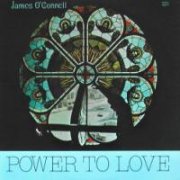 |
Power to Love (1975, 38.30) */TT½ |
|
| Spiritual Gold When You Believe Lift Up Your Voices Supernaturally High Psalm 34 Power to Love Thank You Lord Rainbow Hill |
You Don't Really Have to Hide Jesus Come Be My Lord |
|
Current availability:
Mellotron used:
What can I tell you about James O'Connell? Effectively nothing; I don't even know whether or not he made more than the one album, 1975's Power to Love and, to be perfectly honest, even if he did, I suspect most of us would be better off had we never heard it. This is an absolute stinker; think: slushy mid-'70s Christian country/folk/pop with extra added cheese. Oh, you'd rather not think about that? Me neither, but, unlike you, dear reader, I've just sat through this crud. It has no redeeming features (pun intended).
An unknown musician plays Mellotron, with a background string part on opener Spiritual Gold, more background strings and choirs on Lift Up Your Voices, flutes on Thank You Lord (distinct from the real one utilised elsewhere), cellos and really quite upfront strings on Rainbow Hill and choirs on You Don't Really Have To Hide (who's hiding, botherer?). Does it improve matters? Nope. This is properly, good old-fashionedly horrible. Let us thank the Lord that it's out of print. Er...
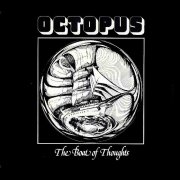 |
The Boat of Thoughts (1977, 35.29) **½/TThe First Flight of the OwlKill Your Murderer If You Ask Me The Delayable Rise of Glib We're Losing Touch The Boat of Thoughts |
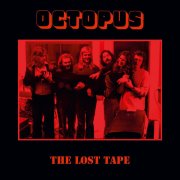 |
The Lost Tapes (2023, recorded 1974, 36.48) ***/TTJudgement DayTime in My Hands The Shadow of Your Smile Zipoli Son of Sorrow part one World of Cruelty |
Current availability:
Mellotrons used:
I should've known, as soon as I saw the Sky label. Sky appear to be the haven for second-division German prog outfits (so how come Eloy got a major deal?), i.e. the ones Brain didn't want. I've listened to The Boat of Thoughts several times and it resolutely fails to impinge itself onto my consciousness in any way whatsoever; the compositions are poor, the playing merely competent, while the production is probably best described as 'budget'. Jennifer Hensel's vocals are too high in the mix and, frankly, pretty awful, while Pit Hensel's guitar work is utterly generic and average. It picks up slightly on the title track, which at least has a bit of energy to it, but it's hardly inspired.
Werner Littau uses a (presumably borrowed/hired) Mellotron on a couple of tracks, to no particular effect; Kill Your Murderer has a few ungainly slabs of strings, although The Boat Of Thoughts itself is slightly better, with some decent enough string block chords, but this is a very long way from 'classic' status. You know, I really hate having to be so harsh to a well-meaning progressive outfit, but Octopus are just so mediocre that I don't feel I can recommend this at all. Saying that, the following year's An Ocean of Rocks (**½) is even worse. However, if you're big on the 'German prog sound', you may get something from these albums; just because I've failed to doesn't mean that you will. Just don't go spending loads of money on them.
2023's The Lost Tapes (and can anyone tell me why the LP version's cover says 'Tapes', while the CD says 'Tape'?), is taken from a cassette found in a storage unit nearly fifty years later. And, by God, it sounds like it... I've never been one to dismiss the eventual release of long-lost archive recordings, even of poor sound quality, though, so kudos to Sireena for making this available. Unfortunately, Octopus were never the greatest of bands (it takes a lot for me to give any '70s prog album under three stars), although this is better, if only slightly, than their late '70s albums. Its most irritating 'feature', though, is the material's inconsistency: Ziploi has some lovely moments, then spoils it with a run-of-the-mill boogie section, while opener Judgement Day, otherwise pretty decent, has a section that sounds like a budget rip of Heart Of The Sunrise. Despite its slightly amateurish feel, though, album highlight is the nine-minute Son Of Sorrow Part One, the band pulling out all their best psych/prog moves. Hans-Paul Sattler on Mellotron, with background strings on Judgement Day, what sounds like low-in-the-mix brass on The Shadow Of Your Smile (and are those choirs, or the band singing harmony?) and strings, brass and more of those probable choirs on Son Of Sorrow Part One, with a lovely solo strings/brass part towards the end. But what does it say about a band that their early demos are better than their commercially released albums? Perhaps the word 'commercial' gives us a clue.
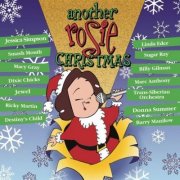 |
Another Rosie Christmas (2000, 50.00) **/T |
|
| Rockin' Around the Christmas Tree Nuttin' for Christmas Winter Wonderland Merry Christmas From the Family Face of Love Ay Ay Ay it's Christmas Spread a Little Love on Christmas Day The Bells of St. Paul |
Silver Bells I'm Gonna E-Mail Santa Christmas Auld Lang Syne The Prince of Peace Rosie Christmas Because it's Christmas (for All the Children) |
|
Current availability:
Chamberlin used:
Rosie O'Donnell is one of those US comedians (or comediennes, if you insist) who mean diddly-squat on the other side of the Atlantic, but are household names in their own country. She's actually a bit of a liberal star, being outspoken on the kinds of issues that make American conservatives see red, if you'll pardon the pun, which doesn't excuse Another Rosie Christmas. I'm glad to say I don't need to listen to its predecessor, as one was bad enough, thank you very much. OK, it has its amusing moments, not least the Dixie Chicks and O'Donnell collaborating on a trailer-trash piss-take, but generally speaking, it's awful. You want details? It's a Christmas album. I rest my case.
Patrick Warren does his usual Chamberlin thing; I'm not under the slightest illusion that the estimable Mr. Warren actually enjoys most of his sessions. Or maybe he does? It's easy to focus on your part of the jigsaw without feeling the need to pass judgement on the whole picture. Anyway, he adds strings and flutes to Winter Wonderland and strings to the bizarre Christmas Auld Lang Syne (can you hear The Bard spinning in his grave?), but that appears to be it. No, you don't want or need to hear this album. End of story.
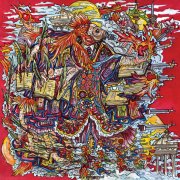 |
False Priest (2010, 53.41) **½/TT½ |
|
| I Feel Ya' Strutter Our Riotous Defects Coquet Coquette Godly Intersex Enemy Gene Hydra Fancies Like a Tourist Sex Karma |
Girl Named Hello Famine Affair Casualty of You Around the Way You Do Mutilate? |
|
Current availability:
Chamberlin used:
Athens, GA, Elephant Six psychsters of Montreal (note lower case 'of') turned towards '70s soul on 2008's Skeletal Lamping, for reasons best known to themselves, 2010's False Priest mostly carrying on in a similar vein. Better tracks include Coquet Coquette, with its deranged sitar (guitar) intro, the skronky Around The Way and nuts closer You Do Mutilate?, but I'm afraid the bulk of the album left this listener rather nonplussed. The band are, of course, making music to please themselves (and rightly so), but I'm not quite sure if this is going to please anyone else.
If the band's two previous releases are in samples, why is this here? Because, dear reader, this time round, the band have utilised the justly famed Jon Brion in a joint production/session capacity, openly stating that he persuaded them to replace their already-recorded Mellotron samples with his real Chamberlin. As so often with the Chamby, it's not always easy to tell where it might've been used, but we get definite flutes and cellos and possible brass on I Feel Ya' Strutter, more flutes on Our Riotous Defects and Enemy Gene (particularly upfront on the latter) and strings, what sounds like Chamby rhythm tapes on Sex Karma and strings on You Do Mutilate? Is that it? Who knows? I can't hear it anywhere else, but it could be on several other tracks, too.
See: Samples etc. | Jon Brion
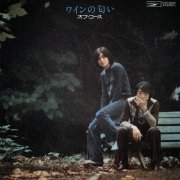 |
Wine no Nioi (1975, 38.27) **/½ |
|
| Amenofuruhini Kinō e no Tegami Nemurenuyoru Shiawase Nante Wain'nonioi Are Kara Kimi wa Uki Yoni Shōnen no yō ni |
Ame yo Hageshiku Ai no Uta Gensō Rōjin no Tsubuyaki |
|
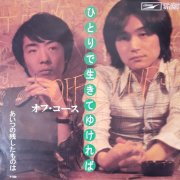 |
7" (1976) **/T½ Hitori de Ikite Yukereba Aitsu no Nokoshita Mono wa |
Current availability:
Mellotrons used:
I can't tell you an awful lot about Off Course, although 1975's Wine no Nioi (Bouquet of a Wine) is apparently their third album. Frankly, it's a rather drippy effort, largely consisting of wet balladry, to the point where the more energetic Nemurenuyoru and Ame Yo Hageshiku sound better than they actually are. Kazumasa Oda plays background chordal Mellotron flutes on Shiawase Nante, to no great effect. Feel the need? It's on YouTube.
The following year's predictably insipid single, Hitori De Ikite Yukereba, is Mellotron-free, although its flip, Aitsu No Nokoshita Mono Wa, features an orchestrated flute part, not to mention similarly-arranged synths. Once again, thank you, YouTube.
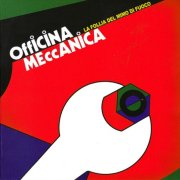 |
La Follia del Mimo di Fuoco (2007, recorded 1973-77, 59.32) ***/½Suite Bambini InnocentiPrimo Turno Via Non Esiste Insieme Al Sole Nel Grattacielo delle Idee il Pensiero Più Alto e' la Pazzia Amanti di Ieri Il Viaggio di un Uomo Non Più Uomo Nella Valle del Tempo Angelo |
Current availability:
Mellotron used:
How many more 'unreleased albums' from the '70s are languishing in attics everywhere? Officina Meccanica released a handful of singles at the time, but never managed an album, so here it is, thirty years on. La Follia del Mimo di Fuoco is less prog, more jazz-rock, frankly, probably at its most interesting to the progressive fan on opener Suite Bambini Innocenti.
Pierrot Lunaire's Gaio Chiocchio plays Mellotron and Moog on Suite Bambini Innocenti, with what I presume are the most distant of distant strings at one, brief point in the track. Certainly not a lost Mellotron classic, nor, really, a progressive one.
 |
Nokosa Reta Dōkei (1974, 43.32) ***/T |
|
| Rakugaki I Rakugaki II Hanageshō Rakugaki III Shiroi Tsuitachi Rakugaki IV Tobenai Koumori Nozarashi no Chūshajō |
Yūgure no Kawa ni Rakugaki V Itosugi no Aru Fūkei Hito Kire no Aozora Rakugaki VI Rakugaki VII Nokosa Reta Akogare Rakugaki VIII |
|
Current availability:
Mellotron used:
Going by 1974's Nokosa Reta Dōkei, Kei Ogura is a fairly typical example of über-mainstream Japanese singer-songwriter pop, although the album's not as much of a cheesefest as I'd expected. Highlights? Well, I probably wouldn't go that far, but sparse opener Rakugaki I (channelling Lucy In The Sky With Diamonds), Rakugaki IV and the mildly overblown Nozarashi No Chūshajō are decent enough, although cheese such as Nokosa Reta Akogare makes me want to knock a half star off its rating.
Jun Fukamachi plays Mellotron, with a string part on Tobenai Koumori, quite distinct from the real strings used elsewhere and distant choirs on Nozarashi No Chūshajō. Neither a classic nor a Mellotron Album, this could actually be a great deal worse. Is that a recommendation? Not really, no.
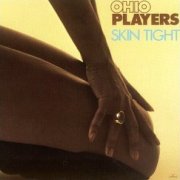 |
Skin Tight (1974, 41.03) ***/T½Skin TightStreakin' Cheek to Cheek It's Your Night/Words of Love Jive Turkey Heaven Must Be Like This Is Anybody Gonna Be Saved? |
Current availability:
Mellotron used:
Skin Tight was the Ohio Players' seventh album and their breakthrough into the mainstream. Their fat funk sound had been making waves for years, but it took a label change to Mercury to give them that all-important hit album. As with many funk outfits in the pre-disco mid-'70s, the Players allowed themselves to stretch out a bit on vinyl, all six tracks on the album jammed out to one extent or another. I really don't feel qualified to comment on the music, as it seriously isn't my bag, but it seems to be good at what it does, particularly on the funkier, more uptempo tracks.
Although he isn't credited with it, vocalist/keyboardist Billy Beck plays Mellotron on a couple of tracks, with a pseudo-string section-style part on It's Your Night/Words Of Love, leaving the album's Major Mellotronic Moment for Heaven Must Be Like This, with string, flute and cello parts, all heavily reverbed and doing their best not to sound like a Mellotron. So; another unexpected Mellotron album from the funkier end of the spectrum, if not the heaviest use of the machine you'll ever hear.
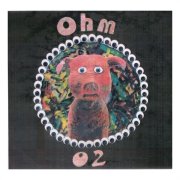 |
O2 (1997, 43.32) ***/TTTUntitled No. 1Untitled No. 2 Untitled No. 3 Untitled No. 4 Untitled No. 5 |
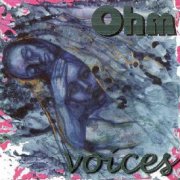 |
Voices (1999, 69.46) ***/TTTIn a Desert-Alambic/Clash of the TitansTension, No Release Drones Voices du le Blon Are You Ready? Salt N' Pepper Cake/Fortress of Ultimate Darkness Ghostly Voices |
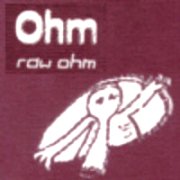 |
Raw Ohm (2001, recorded 1997-98, 58.54) ***/TTT½Melodica Festival, May '98, AustinOhm Practice, Summer '97, Ft Worth Club Nowhere, 11-29-97, Ft Worth Club Nowhere, 11-29-97, Ft Worth The Argo, 6-26-97, Denton |
Current availability:
Mellotrons used:
Ohm were a space-rock/psych outfit, featuring analogue keys enthusiast Doug Ferguson (also of Yeti). The first of their three albums, 1997's O2, is a fairly startling piece of work, full of the kind of sonic exploration that so many late '60s bands promised, but were ultimately unable to deliver (did I hear anyone say Jefferson Airplane?). Its two chief instrumental components seem to be synths and woodwind; not the commonest combination, but not the commonest band, either. None of the tracks are actually titled, which, while slightly irritating, at least dispenses with the 'what do we call instrumentals?' problem. This is far from easy listening, but isn't that a good thing? Ferguson's first Mellotronic outing on the album comes several minutes into the first track, with a relatively lush string part underpinning the real violin, with massively pitchbent strings on track two. The choirs make their entry well into track three, reiterating on five, while four features some serious flute, string and choir action, although it's the most major use on the album. I'd vaguely expected more Mellotron than we actually get, but this is still pretty good on that particular front, although more for track four than anything else.
1999's Voices continues its predecessor's good work, although seventy minutes of this stuff is a little gruelling, frankly. It's at its best on the full band arrangement, including woodwinds, of opener In A Desert-Alambic/Clash Of The Titans and the crazed, eighteen-minute Salt N' Pepper Cake/Fortress Of Ultimate Darkness, while Tension, No Release and Drones are, slightly predictably, drone pieces, unsurprisingly Mellotron-free. Talking of which, Ferguson plays a mad, choppy choir part on In A Desert-Alambic/Clash Of The Titans, possibly inspired by Änglagård, or their influence, SFF, plus brass and strings, distant, repetitive choir chords and a high string part, with pitchbend on Are You Ready?, ghostly strings and occasional choir chords a good halfway into Salt N' Pepper Cake/Fortress Of Ultimate Darkness and suitably ghostly choirs on ten-minute closer Ghostly Voices.
2001's Raw Ohm is a slightly-above-bootleg-quality live recording from gigs in '97 and '98, none of them actually titled per se, once again, although the Bandcamp release titles them after their recording venue and date. All five tracks sound improvised, shifting from relatively ethereal passages through brooding menace to all-out lunacy; this is what 'space rock' should ACTUALLY sound like. Ferguson plays full-on Mellotron flute and string parts, plus choirs later on, on the first Club Nowhere track, pitchbent strings and brief, distorted bursts of choir on the second and strings and choppy choirs on the recording from the Argo that closes the set. Tragically, Ferguson died in early 2002, signalling the end of the project, although Yeti have carried on.
See: Yeti
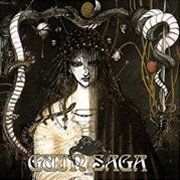 |
Guin Saga: War Battle (1985, 43.35) ***½/TPurorōgu ~ Shinkirō no Renka ~Kurisutaru no Hanran I Kansō-Kyoku ~ Ikanaruhoshinomotoni ~ Kurisutaru no Hanran II Fukushū no Megami Kansō-Kyoku ~ Yūshū ~ Remusu Taikan |
Current availability:
Novatron used:
Guin Saga is Kaoru Kurimoto's vast, bestselling Japanese fantasy fiction epic, with over a hundred and fifty volumes published, making it the longest single-writer's work ever (Germany's awful Perry Rhodan series, now into the thousands (gulp), is by multiple authors, using that term in its loosest possible sense). I don't know the story behind these (usual language issues), but synthesists Goro Ohmi & Big Mouth released a series of albums based on the books in the early '80s, all in the cheesy 'synth rock' style seemingly so popular in Japan at the time. I've had the first three listed here forever, but since they've all turned up on YouTube, two hours' listening has informed me that their uncredited Mellotron doesn't exist (?!).
The fourth instalment, 1985's Guin Saga: War Battle, however, is another matter. Musically, it's the usual mix of instrumental symphonic metal (years before that was a thing) and gentle, Japanese-sounding soundtracky stuff, typified by the splendidly overblown, eleven-minute Fukushū No Megami, all mad orchestral passages and ripping Hammond solos. OK, solo. Ohmi's actually credited with Novatron, the later, post-US court case version and, indeed, there it is on Kurisutaru No Hanran II, the strings clearly Mellotronic (Novatronic?), as against the real ones heard elsewhere, while the choirs are unmistakable. Y'know what? Despite myself, I loved this. Not only the best of the four I've heard (I know of one more, from '86), but the only one with any tape-replay work. Listen to it on YT.
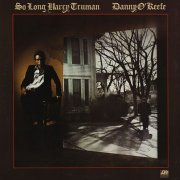 |
So Long Harry Truman (1975, 34.40) **½/T½ |
|
| So Long, Harry Truman Quits Rainbow Girl The Delta Queen The Kid/The Last Days Covered Wagon It's Been a Good Day Fiddler's Jamboree |
Steel Guitar Hard Times |
|
Current availability:
Mellotron used:
Danny O'Keefe seems to be known more for his songwriting than as an artist in his own right, having had his songs recorded by a pantheon of major names, not least Judy Collins, Willie Nelson and Elvis. His fourth solo album, 1975's So Long Harry Truman, features most of the then-lineup of The Eagles on a few tracks, just prior to their massive breakthrough with Hotel California, along with Linda Ronstadt, which probably gives you some idea of what it sounds like. Yup, country-lite, although Covered Wagon and Steel Guitar are more rock'n'roll and The Delta Queen is a sort-of Sinatra-era ballad, leaving closer Hard Times (ironically Eagle-free) as the kind of country-rock epic that band had already made their own (think: The Last Resort).
John Boylan plays most full-on Mellotron strings on Rainbow Girl, plus an uncredited part on The Kid/The Last Days to actually pretty good effect. You're unlikely to want to hear this too badly unless you're already a fan of O'Keefe and/or his songwriting, although it has its moments, principally Hard Times and the Mellotron work.